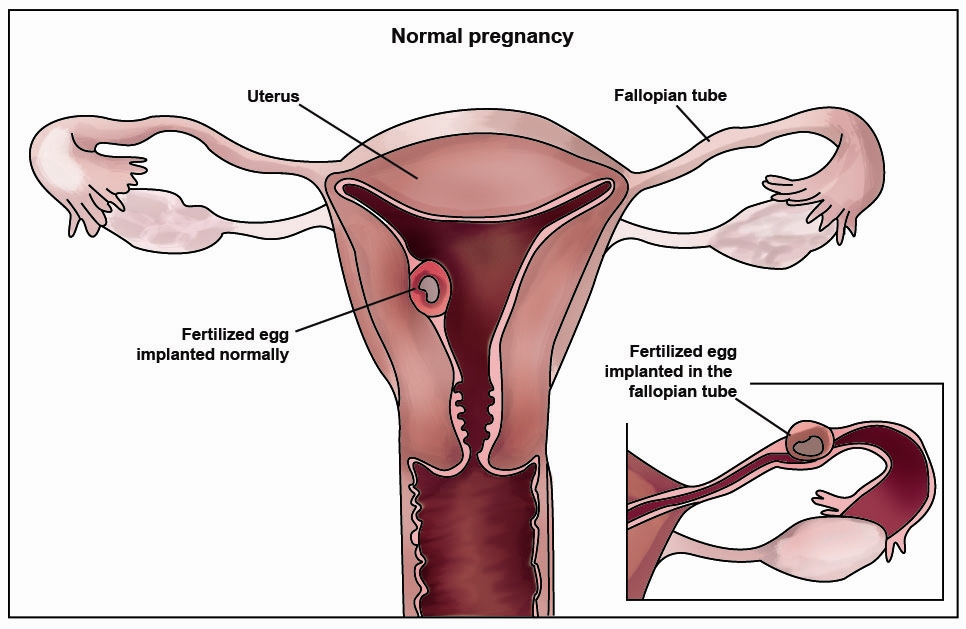Ectopic Pregnancy
What is an ectopic pregnancy?
This is a condition where the fertilized egg implants itself outside the womb (uterus)
How do an ectopic pregnancy happens?
Normally after being fertilized (where the sperm and egg meets to form an embryo), the egg will go down through the tube to implant itself in the womb uterus. However, if the tube is blocked, the fertilized eggs will then implant in the tube. The tube’s wall is too thin too sustained the growing fertilized egg and could rupture and bleed. Unfortunately, we do not have the technology yet to implant the fertilized egg back into the uterus and thus it has to be removed.
- Previous history of ectopic pregnancy
- Previous history of pelvic inflammatory disease caused by sexually transmitted disease (e.g Chlamydia or gonorrhoea) affecting the tubes
- Older women > 35 years old
- You got pregnant while having an intra-uterine device still inside your womb or after a tubal ligation
- Previous history of surgery on your tubes.
What are the symptoms of an ectopic pregnancy?
- You may not have any symptoms at all
- Lower abdominal pain
- Abnormal vaginal bleeding heavier or lighter than your normal period
- Dizziness, fainting episodes, pulse racing or pain in your shoulder tips
How is the diagnosis of an ectopic pregnancy done?
- Pelvic examination : Tenderness in your pelvis, a pelvic mass
- Blood test: Hormones for pregnancy (BHCG) could confirm that you are pregnant. If you have no symptoms, your doctor may monitor the level of your BHCG by repeating the level within 48 hours.
- Ultrasound scan: Your doctor could probably detect the embryo in your tubes or presence of bleeding inside your abdomen with no embryo seen within the uterus.
Figure 2. Ultrasound scan findings of an ectopic pregnancy
What is the treatment for an ectopic pregnancy?
- Medical treatment: Methotrexate (this is an e.g of a chemotherapy drug) which is given via injections into the muscle. Once in the blood stream, it would travel to the embryo and stop it from growing.
- Surgical treatment: This could either be done laparoscopically (key hole surgery) or open surgery where the affected tubes containing the ectopic pregnancy will be removed.(salpingectomy)









